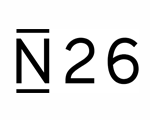Luxembourg has an upper bracket of ‘only’ 46 per cent. There have been a variety of proposals both to cut the level of income tax and to simplify the taxation systems The tax year in Luxembourg is the same as the calendar year – 1st January to 31st December).
As in many other countries, employees' income tax (often referred to as salary tax) is deducted at source by their employers, i.e. on a ‘pay as you earn’ (PAYE) basis, and if most or all of your income is from your job, you may not even need to file a tax return, provided the tax paid on your salary is adequate to cover your tax obligations and you aren’t entitled to a refund or any special allowances or tax credits. On the other hand, if you have various sources of income, it's prudent to employ an accountant or professional tax adviser to complete your tax returns and ensure that you’re properly assessed, as the tax system in Luxembourg is inordinately complicated. The information below applies only to personal income tax and not to companies and was current in mid-2001.
Many books are published in the local languages designed to help you understand and save taxes, and income tax guides are published each year as special editions of many of the consumer and financial magazines and journals. Many income tax guides now come with CD-ROMs containing software to help you complete your tax forms and calculate your tax liability. The Ministry of Finance also publishes extensive information on income taxes on its website, often in English as well as the local languages. There are local tax offices (contact your town hall or local government for the address) where you can obtain brochures or have questions answered.
In Luxembourg, income tax is withheld from your salary according to the information supplied on your official tax card ( fiche de retenue d'impôt). When you first register at your town hall or at the beginning of each tax year, you’re sent a tax card listing your name, address, marital status and the number of children in your household for whom you’re entitled to deductions or allowances. The tax card will also indicate the tax category to which you belong:
- Class 2 – married couples assessed jointly;
- Class 1a – single or widowed people over the age of 65 and single, separated, widowed or divorced people with dependants living in the household;
- Class 1 – everyone not eligible for class 1a or class 2, i.e. all single people under the age of 65 with no children or other dependants living in the household.
The number of dependants for which you’re entitled to claim tax relief is indicated by a figure following the tax class: e.g. a married couple with two children would be classified as 2.2, while a single mother with one child would be 1a.1. A married person who is widowed, divorced or separated remains in class 2 for three years following the bereavement or separation.
You must verify the information on the card you receive and then give the card to your employer, who uses it to record payroll information, including the income tax deducted from your salary and paid to the tax authorities. If any of the information on your tax card is incorrect when you receive it or if your situation changes during the tax year (e.g. if you marry or a child is born or leaves home), you must notify the tax authorities and your employer immediately. It isn't as important to notify them of the death of your spouse or of a divorce or legal separation, as your tax class won't change for another three years.
The tax card includes an official form for notifying the tax office of any changes, which also lists the address where it should be sent. If both spouses work, the person receiving the 'second income' receives a special tax card, called a fiche de retenue d'impôt additionnelle, which tells his employer to calculate his income tax accordingly.
The employer is responsible for tracking and recording your travel and commuting deductions (based on the address at which you’re officially registered) as well as any additional deductions, expenses or extraordinary charges which affect your taxes. To update your tax card for such items, you must complete Form 161 and send it to the tax office. In theory, you don't need to file a tax return at the end of the year if your only income is from employment and you’ve properly notified both the tax office and your employer of any special circumstances. However, there are a number of tax advantages (mostly related to investments and investment income) which cannot be claimed unless you file an income tax return.
This article is an extract from Living and Working in Holland, Belgium & Luxembourg.


